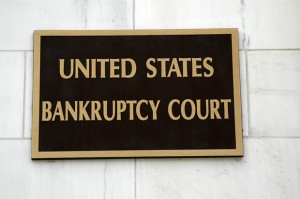 Filing a bankruptcy case puts an automatic stay in effect which stops all debt collection activity against the debtor. The stay prevents collection calls, collection letters, lawsuits, foreclosure, repossessions, garnishment, attaching liens against debtor’s property, etc. Most creditors understand that bankruptcy means “Stop!” and they will leave the debtor alone once a case is filed. However, on occasion I run across a creditor that is unfamiliar with the bankruptcy process and attempts to collect a debt when they shouldn’t.
Filing a bankruptcy case puts an automatic stay in effect which stops all debt collection activity against the debtor. The stay prevents collection calls, collection letters, lawsuits, foreclosure, repossessions, garnishment, attaching liens against debtor’s property, etc. Most creditors understand that bankruptcy means “Stop!” and they will leave the debtor alone once a case is filed. However, on occasion I run across a creditor that is unfamiliar with the bankruptcy process and attempts to collect a debt when they shouldn’t.
When a creditor violates the stay it is usually in my client’s best interest to try to resolve the issue without litigation. I’ll start by calling the creditor to make sure they know that the debtor is in bankruptcy and ask them to stop attempting to collect their claim. After the telephone call I follow up with a letter. If after the telephone call the creditor leaves my client alone then I will not file suit, assuming the only damage to my client is the irritation of taking a few phone calls.
It gets more complicated when my client has actually been harmed in some way, such as their car being repossessed, a lawsuit filed, or foreclosure of their home. When that happens I have to file an adversary proceeding against the creditor for a stay violation. An adversary proceeding is a lawsuit in the bankruptcy court. In most cases the facts are clear. If I can show that the creditor was sent notice of the bankruptcy filing and still violated the stay then the lawsuit will generally end in my client’s favor. Plaintiffs who are successful in stay actions can expect the defendant to have to pay their attorney’s fees, court costs, any actual costs resulting from the stay violation such as damage to the debtor’s property, and usually punitive damages as well.